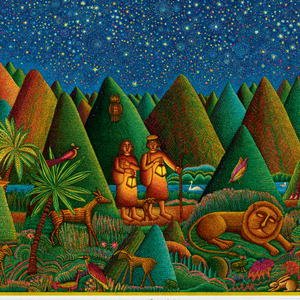
Today’s readings do not make sense to me in a way that they once did. I used to take heart in the first reading’s description of how “God sees;” aspire to be a “child of light” as described in the Second Reading; and strive to avoid the close-mindedness of “the Jews” who are highlighted in this gospel passage of the “man born blind.” As I have been studying theology and preparing for ministry, things have become complicated. Grace-filled encounters with the Word of God and the People of God have prodded at my own assumptions and beliefs. Here are three examples:
My sense of God’s sight in the first reading and the sight of the man born blind in the Gospel is nuanced by disability theologians like Nancy Eisland who complicate the overly simplistic interpretation of Jesus’s healing miracles, which can lead to discrimination against / diminishment of those who are blind or live with other disabilities.
My perception of the second reading is broken open by Black Christian intellectuals like Cole Arthur Riley who uplift the sacredness of darkness (in Mary’s womb, in the fertile soil of the earth, etc.) as they challenge the false binary of light-dark that has been mapped onto supremacy of whiteness (lightness) and weaponized against people of color.
My understanding of the dynamics between the characters in the Gospel is deepened by Jewish scholars such as Adele Reinhartz who trace the disturbing ways in which historical and current hateful violence towards Jewish people is connected to Christians’ interpretation of scripture, especially the Gospel of John.
All in all, my experience of following the Good Shepherd of today’s Psalm continues to fill “my cup” with nuanced insights, challenged perceptions and deepened understanding. I believe that all of this disruption draws me nearer to God, albeit in a seemingly paradoxical way.
This Lent, how might you embrace our God who transcends binaries and easy answers – our God who is (in the words attributed to St. Patrick) simultaneously before and behind us, both below and above us, and never to part us?



